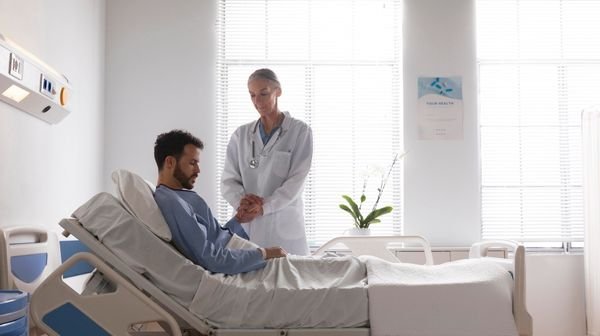Recovering from piles surgery doesn't have to be a lengthy, uncomfortable journey. With the right approach, proper care, and proven strategies, you can significantly speed up your healing process and return to normal life sooner than you might expect. This comprehensive guide provides expert-backed tips that thousands of patients have successfully used to accelerate their recovery.
Understanding Your Recovery Journey
Piles surgery recovery typically takes 2 to 8 weeks, with most patients feeling significantly better within the first two weeks. However, your recovery timeline depends on several factors including the type of surgery performed, your overall health, and how well you follow post-operative care instructions.
During the recovery period, you can expect some discomfort, pain, or mild bleeding in the initial days following surgery. Understanding what's normal helps you stay calm and focused on healing rather than worrying about every sensation.
What to Expect Week by Week
Week 1-2: Initial healing phase
- Pain levels typically range from moderate to severe initially
- Some bleeding and swelling are normal
- Focus on rest and basic wound care
Week 3-4: Significant improvement phase
- Most people report that pain is gone after two weeks
- Gradual return to light activities
- Continued emphasis on proper diet and hygiene
Week 5-8: Full recovery phase
- After 1 to 2 weeks, you should be able to do most of your normal activities
- Complete tissue healing
- Prevention-focused lifestyle adjustments
The Foundation of Fast Recovery: Diet and Hydration
Your diet plays the most crucial role in determining how quickly and smoothly you recover. The primary goal is preventing constipation and reducing strain during bowel movements.
Essential Foods for Rapid Healing
High-Fiber Powerhouses
Include plenty of fiber to prevent constipation and promote regular bowel movements:
- Whole grains (oats, brown rice, whole wheat)
- Fruits (apples, pears, berries)
- Vegetables (leafy greens, broccoli, carrots)
- Legumes (beans, lentils)
Hydrating Heroes
- Water: 2–2.5 liters daily recommended
- Fresh fruit juices: Hydration plus vitamins
- Clear broths: Gentle on digestive system
- Herbal teas: Chamomile and ginger for soothing
Probiotic Champions
Curd or buttermilk is one of the best foods to eat after piles surgery because they are rich in probiotics to enrich gut microbes and promote a healthy digestive system.
Healing Nutrients
Magnesium and zinc are crucial for healing:
- Dark chocolate (in moderation)
- Avocados
- Whole grains
- Seeds and nuts
Your Recovery Diet Timeline
Day 1: Full Liquid Diet
- Water and clear broths
- Herbal teas (chamomile, ginger)
- Clear fruit juices (apple, cranberry)
Day 2 and Beyond: Soft, High-Fiber Diet
- Cooked and mashed vegetables
- Well-cooked grains (rice, quinoa)
- Lean proteins (chicken, fish, tofu)
- Soft fruits with skin when possible
- Cooked legumes
Foods to Strictly Avoid
Avoid alcohol and spicy foods after hemorrhoid surgery. Additionally, eliminate:
- Processed and refined foods
- Full-fat dairy products
- Red meat (initially)
- Caffeinated beverages
- Carbonated drinks
- Foods high in refined sugars
Pain Management Strategies That Work
Effective pain control accelerates healing by reducing stress on your body and allowing you to rest properly.
Medication Management
To get ahead of the pain after your operation, start your medications before you start to feel it.
- Take prescribed pain medications as scheduled, not just when pain becomes severe
- Use both oral and topical medications as recommended
- Consider stool softeners to prevent painful straining
Natural Pain Relief Methods
Sitz Baths: Your Best Friend
Soaking in a warm bath (sitz bath) for about 15 minutes can provide relief from pain and itching
- Use warm (not hot) water
- Soak 3-4 times daily, especially after bowel movements
- Add Epsom salts for additional anti-inflammatory benefits
Positioning and Movement
- Avoid prolonged sitting
- Use cushions when sitting is necessary
- Take short walks to improve circulation
- Elevate your legs when lying down
Hygiene and Wound Care Excellence
Proper hygiene prevents infections that could significantly delay your recovery.
 Book Appointment
Book Appointment

Leave a Reply
Your Email address will not be published